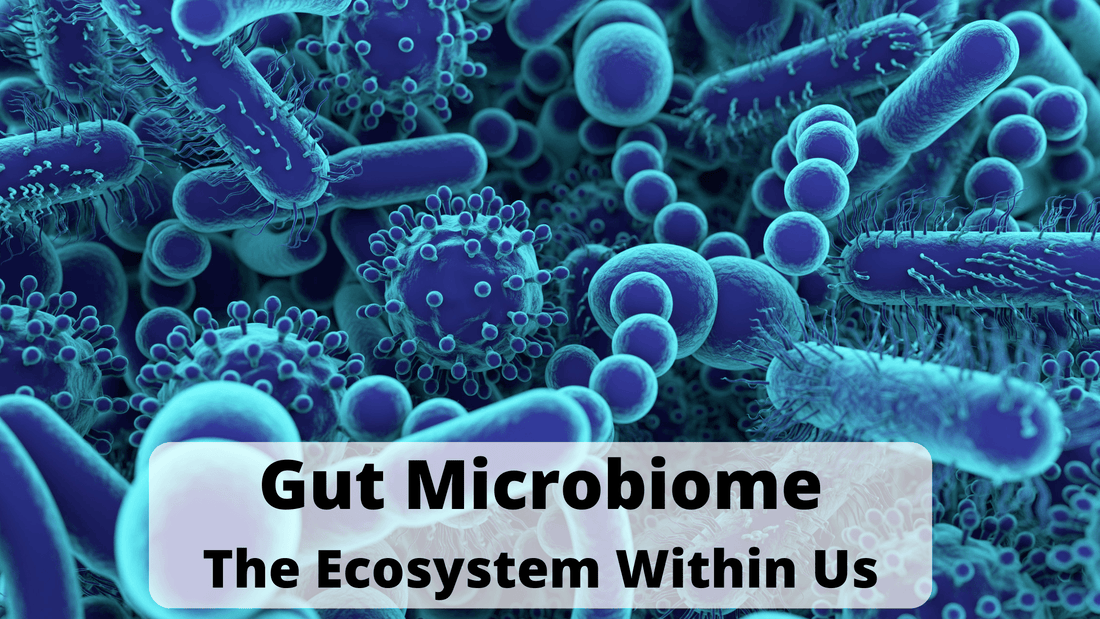
7 Ways How The Microbial Zoo In Our Gut Influences Weight Management
Naturally YoursShare

Have you ever noticed how some people maintain weight and stay fit so effortlessly? They don’t watch their diet, go to gym or do any sort of physical activity and still manage to stay lean and active. We all happen to know that one person, right-- a friend, a colleague or a neighbour?
Shreya, my cousin is ‘that person’ in my family. Over the years I have seen her guiltlessly indulging in all sorts of food that I would avoid on a weight watch, without ever gaining an extra kilo.
Be it fast food, street food, sweets, carbonated drinks-she can have it all and stay lean (without an exercise regimen) while the rest of us put on weight even with an extra glass of water, as one of my other hapless cousins puts it.
So, what is it that helps these lucky few to forget about counting calories and follow any diet they want? Naturally, credit can be given to genes and metabolism. But part of the answer lies in human gut. Yes! You read it right.
Gut Microbiome: The Ecosystem Within Us
Human body is a host for millions of microorganisms that are called human microbiota. The microbiota resides on human skin, inside the mouth, the nose and most importantly inside the intestinal tract.
Microorganisms inhabiting inside human gut are called gut flora, gut microbiota or gut microbiome. This gut flora includes, bacteria, fungi, archaea and viruses. Activities of these organisms have major impact on our health and immune systems.
These microbiomes affect how well our body absorbs nutrients and minerals and also helps in the synthesis of certain enzymes, vitamins and amino acids. Because of its significance to human health, the scientific community now considers and studies gut microbiome as an organ1.
Each person has a unique gut microbiome which gets altered with age, diet, lifestyle choices, medications and other environmental factors. A rich and diverse gut flora is considered to be healthy. The gut bacteria is of particular importance to human health.
Recent studies estimate that there are about 100 trillion bacteria colonizing human intestines. This is as many as the number of cells in our entire body!
The bacteria form an ecosystem inside us and usually have a healthy, mutual relationship with the hosts’ bodies. There are friendly bacteria and bad bacteria. An imbalance happens in the gut microbiota when the number of harmful bacteria goes up. This disrupts our digestive mechanism. The condition is called dysbiosis and has far-reaching impact on metabolism and hunger.
Dysbiosis is often linked to weight gain, obesity, diabetes and cardiovascular diseases.
Bugs In Action: Seven Ways How Gut Bacteria Aids in Weight Management

In 2010, a team at Cambridge University, published their research findings on gut bacteria and their effects on obesity and metabolic disorders2. Their study found out that the bacterial activities in the gut affects the body weight. The following are 7 ways in which gut bacteria can influence weight management.
1. Help in digestion
Gut bacteria is not directly involved in the process of weight loss. Instead, they help in the digestion of complex nutrients.
There are certain dietary fibres and compounds that escape the digestive juices. When these particles reach the small intestine, the gut bacteria feed on them and break them into Short-chain fatty acids (SCFAs). Then, the body easily absorb these fibres. Polyphenol is one such plant compound that can be broken down only by gut bacteria.
2. Production of vitamins and enzymes
The gut bacteria produce Vitamin K2 and folates. Vitamin K2 is essential in blood clotting while folates play a key role in our metabolism. Vitamin B12 can be produced only by a bacterial or archaeal species. Our gut bacteria can contribute to the supply of vitaminB12. Studies in this area are underway.
3. Improve ability to extract and absorb energy from food
The health of bacterial community and nature of their activity influence the quantity of energy derived from food and absorbed by body. The Cambridge study has found that variations in gut microbiota can cause inflammation, insulin resistance and weight gain.
They also observed a direct correlation between obesity and loss in diversity of gut flora.
4. Short-chain Fatty acids and Metabolism
Short-chain fatty acids produced by gut bacteria promote metabolism and regulate fat storage. The SCFAs are health promoting molecules and an important source of energy to the cells in the colon. They provide between 5%- 15% of our daily caloric needs.
They also assist in appetite control. An imbalance of gut microbiota may cause inflammatory bowel diseases which in turn affects weight management.
5. Resist pathogenic microbes
Beneficial bacteria destroy and inhibit the overgrowth of the pathogenic bacteria. Gut bacteria, thus tries to maintain a healthy balance of gut flora. These microbes can regulate our immune system. They also fight off the harmful external organisms that enter our body through contaminated food.
6. Blood sugar control
Gut bacteria helps the body with better control in blood sugar, preventing sugar spikes and crashes. Recent studies3suggest that presence of certain bacteria and acids produced by them may be involved in the change of sugar concentration in living beings.
7. Influence on release of gut hormones
The cells on our intestinal lining produce various hormones that regulate overall metabolism, hunger and appetite. The presence of gut microbes influence the release of these hormones.
Moreover, the gut bacteria themselves release neuro transmitters like serotonin and dopamine. These chemicals affect how hungry or full we feel.
Listen to your Gut: How to promote healthy gut bacteria

We are never dining alone. The trillions of microorganisms inside are eating the same food with us. Therefore, eating right food in right quantity is very important for gut health.
- Follow a healthy, varied and wholesome diet, including different sources of fibre like whole-grain cereals, fruits, vegetables like broccoli and carrot, pulses and nuts. Include more plant protein in the food.
- Know your prebiotics and take your probiotics- Prebiotic are foods like lentils, oats, bananas, garlic, onion etc. that nourishes the gut bacteria. Probiotic are foods or supplements enriched with live good bacteria. Probiotic intake helps to balance the adverse changes in gut microbiome.
- Reduce intake of refined sugars, artificial sweeteners and unnecessary antibiotics.
- Avoid diet fads and diets that exclude one or more of the nutrient groups. Excluding a particular nutrient group may adversely affect the gut microbiota composition.
- Reduce alcohol consumption. Certain types of alcohol causes dysbiosis.
Stay Fit with Gut: Conclusion
The 100 trillion microbiomes living inside our body are very crucial for our health. The gut bacteria do not facilitate weight management directly. They are not magical beings that regulate and maintain weight for us and help us achieve our fitness goals. Their activities influence our body’s fat composition and overall well-being.
These bugs will care for us as much as we care for them. Maintaining a healthy microbial ecosystem inside will help us to remain healthy.
Further Reading:
- The microbiome as a human organ By F.Baquero and C. Nombela- Clinical Microbiology and Infection, Vol.18, Supp.4,July 2012
- Gut microbiota in obesity and metabolic disorders By Yolanda Sanz, Arlette Santacruz and Poala Gauffin- Cambridge University Press: 14 June 2010, Vol.69, Issue 3, pp. 434-441.
- How Intestinal bacteria can affect your blood sugar and lipid levels- Kumamoto University; Science Daily, 10 April 2018
- Vitamin B12 and Gut Bacteria- Dr.Schweikart;https://www.b12-vitamin.com/gut-bacteria
- The Influence of the Gut Microbiome on Host Metabolism Through Regulation of Gut Hormone Release by Alyce M Martin, Emily W Sun, Geriant B Roges and Damien J Kealing- frontiers in Physiology
- IsThere A Link Between Gut bacteria and Weight loss? -Leanne Edermaniger https://atlasbiomed.com/blog/-
